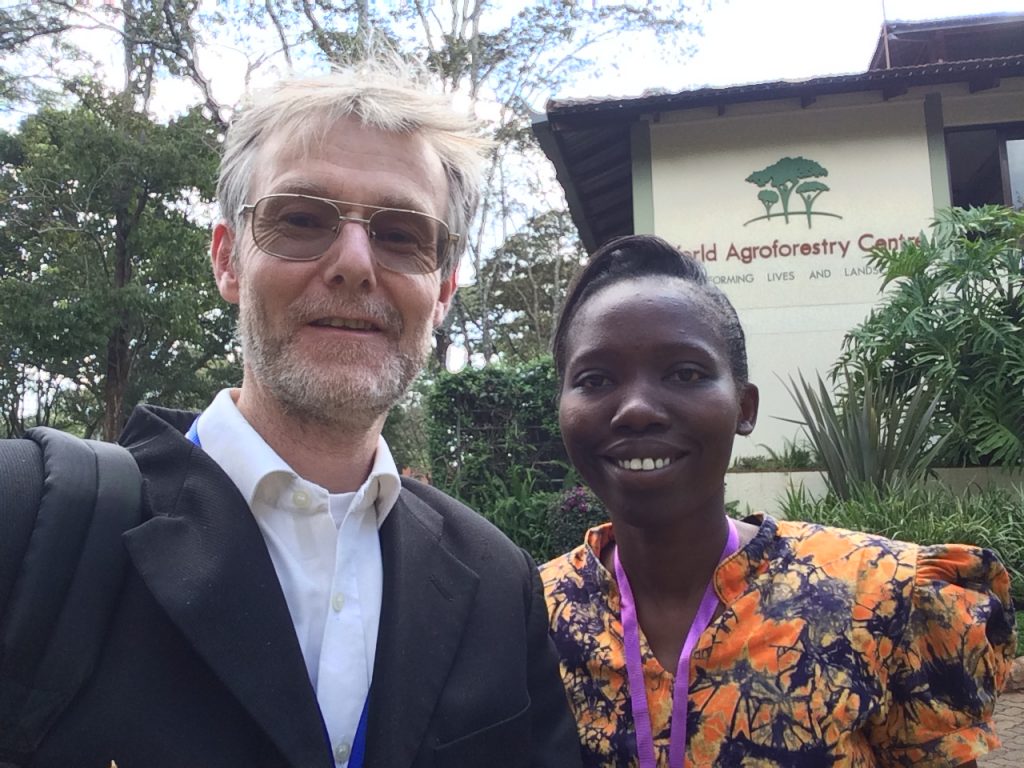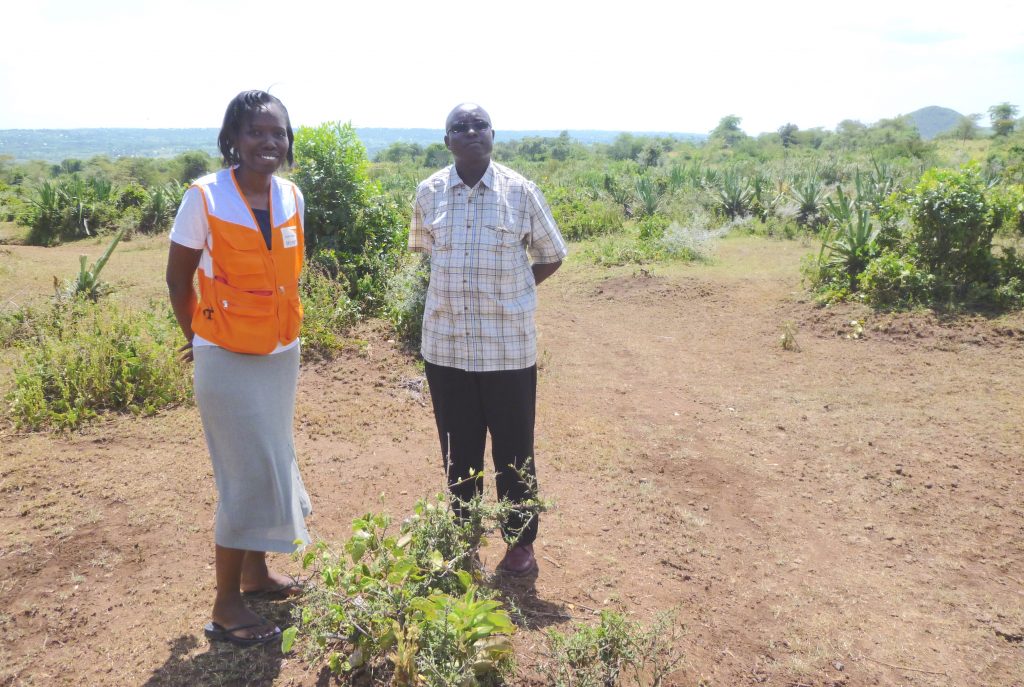Kenyan FMNR champion Irene Ojuok talks to EverGreening Senior Fellow Dr Alan Channer
When Irene Ojuok was a child, she would sit on the shores of Lake Victoria, near her hometown of Kisumu in Kenya, and reflect. ‘I had a sense of connection with nature,’ she recalls, ‘but I didn’t know you could get a job related to it.’
The third-born in a family of nine children, Ojuok grew up in a slum. She helped her mother sell maize and bananas in the local market during free time from school. ‘That was the way I was able to buy school books,’ she told me. She got the books she needed to get excellent grades and enter university.
‘We used to go on nature trips with the Pathfinder Club at my church. That strengthened my interest in the environment during my childhood,’ Ojuok went on.
‘When a friend of my father’s suggested I should study environment, some people said, “What can you do with that?” But I knew it was a good idea. At Kenyatta University, I got even more excited. I realised that the environment is the most fundamental thing: it connects and sustains us as humanity…. I would come home from university full of new ideas.’
Shortly after graduating, Ojuok applied for an internship with World Vision. She has never looked back.
‘My first station was in Narok County. I was in the WASH (Water, Sanitation and Hygiene) sector of World Vision, but I also noticed other things. The Mau catchment was losing trees. The Kipsigis and the Maasais were clashing over natural resources. I had the idea of setting up a tree nursery in one of the schools, utilising water from a farm pond. The tree nursery became income-generating and a model for other schools.’
‘My second posting was in eastern Kenya. It was hot and dry. I did not believe that sanitation and tree growing were separate. I saw that there was spare water available whenever the children washed their hands at the tippy-taps (https://www.worldvision.com.au/global-issues/work-we-do/water-sanitation/tippy-taps). So together with the children in the health clubs, we planted neem trees and indigenous trees at the hand-washing stations and encouraged the children to look after them. As soon the trees were established, we would move the tippy-taps and plant more trees. They are now huge.’
Irene Ojuok’s personal breakthrough came when she was posted to her home area, at Homa Bay on Lake Victoria, to lead a climate resilience project based on farmer-managed natural regeneration funded by BMZ (the Federal Ministry for Economic Cooperation and Development of Germany).
‘I like the concept of climate resilience because it is holistic; whether we are dealing with water, trees or solar power, they are all connected. It is a good framework to see the connections. Moreover, it has now become critical to ensure that communities are engaged and motivated to scale up activities for climate resilience.’
Farmer-managed natural regeneration took off in Homa Bay, improving soil fertility and the availability of firewood in the area. Irene Ojuok became increasingly well-known as an authority on FMNR.
Today, as World Vision’s ‘Environment and Climate Change Advisor’ in Kenya, Ojuok provides technical support to multiple projects and initiatives, notably the six-country ‘Regreening Africa’ programme, funded by the European Union and overseen by her fellow Kenyan, Dr Susan Chomba of the World Agroforestry Centre/ICRAF. The programme was conceived and developed by the EverGreen Agriculture Partnership, the forerunner of the [Global EverGreening] Alliance.

Kenyan FMNR champion Irene Ojuok with EverGreening Senior Fellow Dr Alan Channer. Photo provided by Alan Channer.
I asked Ojuok why she is passionate about FMNR.
‘The benefits,’ she replied concisely. ‘It’s effective and cost-effective. You can grow trees without the cost of purchasing seedlings and survival rates are high. Even in unfavorable conditions, for example in arid and semi-arid areas, FMNR can be successful. I am totally convinced that communities have a key role in restoring their lands, while reviving livelihoods and improving food and nutrition security.’
But if FMNR is so effective’, I asked, ‘why isn’t it better known? What are the constraints?’
‘It’s a question of education and political will. The government is yet to give it serious attention. Some people just think about maximizing production rather than long-term benefits. I remember near Narok, farmers coming to dig up all the land with tractors and losing all the stumps of indigenous trees that could have been useful in the system.
‘Then there is the problem of land tenure, especially in the vast rangelands, where there is communal ownership. It is difficult to manage restoration and to motivate people when there is no coordination, especially without support from the government.’
I asked about Ojuok for her thoughts on FMNR and gender. ‘Especially, in the early stages of adopting FMNR, women have a huge role,’ she replied. ‘FMNR meets the needs of rural women, for example in ease of access to firewood, indigenous fruits, fodder for livestock, and income from bee-keeping, gums and resins among others. However, when value-chains come into play, it is often men who are the decision-makers and who may benefit more. This is an area that needs to be looked into further.
‘Regreening is about changing attitudes,’ Irene Ojuok concludes. ‘Covid lockdown has been a time for me to step back from many activities and to reconsider my role as an environmental steward. Fundamentally, what I want to say is that when we regreen hearts and we regreen minds, we will regreen landscapes.’
